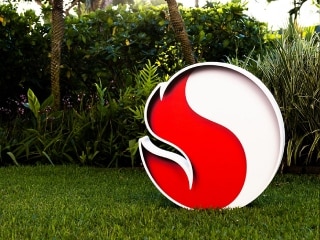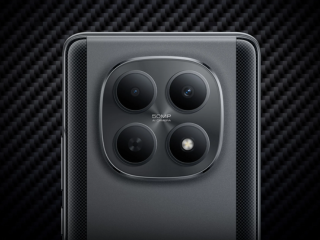- Home
- Science
- Science Features
- Boeing's New Business Targets Computers Modelled on Human Brains
Boeing's New Business Targets Computers Modelled on Human Brains
Boeing Co. is creating a new unit to focus on technology that's seemingly straight out of science fiction, including super-fast computing that mimics the synapses of the human brain and hack-proof communications links based on applied quantum physics.
So-called neuromorphic processing and quantum communications, two of the futuristic technologies Boeing wants to explore, may seem an odd fit for the world's largest planemaker. But such concepts increasingly form the core of aerospace innovation, like the networks that may one day manage millions of airborne drones, said Greg Hyslop, Boeing's chief technology officer.
The technology being developed around advanced computing and sensors is going to have a "profound impact" on Boeing, Hyslop said in an interview Wednesday. "We thought it's time to do this."
The rapid advances in computers and communications are under study by other industrial titans as well. Billionaire Elon Musk's secretive Neuralink business is developing "brain-machine interfaces to connect humans and computers," according to its website. Defence contractors Harris Corp. and L3 Technologies are forming a $33.5 billion (roughly Rs. 2.45 lakh crores) behemoth focused on the increasingly complex communications systems embedded in military systems.
Chicago-based Boeing is betting that its new unit, known as Disruptive Computing and Networks, will help develop breakthroughs in secure communications and artificial intelligence that bolster its manufacturing - while also honing products for the commercial market.
The operation will be based in Southern California, and supported with internal funding by the planemaker, as well as investments made through Boeing HorizonX, the company's venture capital arm. Hyslop declined to say how much Boeing plans to spend on the advanced computing initiative.
As an example of the new technology on the horizon, Hyslop points to the neuromorphic chips that are being developed by HRL Laboratories, the Malibu, California-based research center created by Howard Hughes in 1948.
The gains to be reaped in processing speed under traditional computer architecture are slowing as researchers reach the physical limits of how many transistors can be squeezed onto a single silicon chip. HRL is working with Darpa, the Pentagon's research arm, and others to develop computer architecture that operates like a part of a brain and forgos transistors.
HRL, which is jointly controlled by Boeing and General Motors Co., is creating silicon chips that are "wired much like a human brain," Hyslop said. "It's trying to mimic how our neurons are connected and interconnected in silicon hardware, and reduce the circuits on this."
Eventually, such chips may be able to perform machine learning instantaneously. Hyslop thinks they could wind up incorporated into Boeing aircraft about a decade from now to support autonomous flying.
The new business will be headed by Charles Toups, who was general manager of Boeing Research & Technology, the company's central research and development organization. He is a director at HRL, according to the lab's website, along with Larry Schneider, the chief project engineer for Boeing's 777 program.
Naveed Hussain, who leads the research and technology facility in Southern California, will replace Toups as head of the group of 4,000 engineers, scientists, technicians and technologists, Boeing said.
© 2018 Bloomberg LP
Catch the latest from the Consumer Electronics Show on Gadgets 360, at our CES 2026 hub.
Related Stories
- Samsung Galaxy Unpacked 2025
- ChatGPT
- Redmi Note 14 Pro+
- iPhone 16
- Apple Vision Pro
- Oneplus 12
- OnePlus Nord CE 3 Lite 5G
- iPhone 13
- Xiaomi 14 Pro
- Oppo Find N3
- Tecno Spark Go (2023)
- Realme V30
- Best Phones Under 25000
- Samsung Galaxy S24 Series
- Cryptocurrency
- iQoo 12
- Samsung Galaxy S24 Ultra
- Giottus
- Samsung Galaxy Z Flip 5
- Apple 'Scary Fast'
- Housefull 5
- GoPro Hero 12 Black Review
- Invincible Season 2
- JioGlass
- HD Ready TV
- Laptop Under 50000
- Smartwatch Under 10000
- Latest Mobile Phones
- Compare Phones
- OPPO A6 Pro 5G
- OPPO A6s
- OPPO Reno 15 Pro Max
- Honor Win RT
- Honor Win
- Xiaomi 17 Ultra Leica Edition
- Xiaomi 17 Ultra
- Huawei Nova 15
- Asus ProArt P16
- MacBook Pro 14-inch (M5, 2025)
- OPPO Pad Air 5
- Huawei MatePad 11.5 (2026)
- Xiaomi Watch 5
- Huawei Watch 10th Anniversary Edition
- Acerpure Nitro Z Series 100-inch QLED TV
- Samsung 43 Inch LED Ultra HD (4K) Smart TV (UA43UE81AFULXL)
- Asus ROG Ally
- Nintendo Switch Lite
- Haier 1.6 Ton 5 Star Inverter Split AC (HSU19G-MZAID5BN-INV)
- Haier 1.6 Ton 5 Star Inverter Split AC (HSU19G-MZAIM5BN-INV)

















